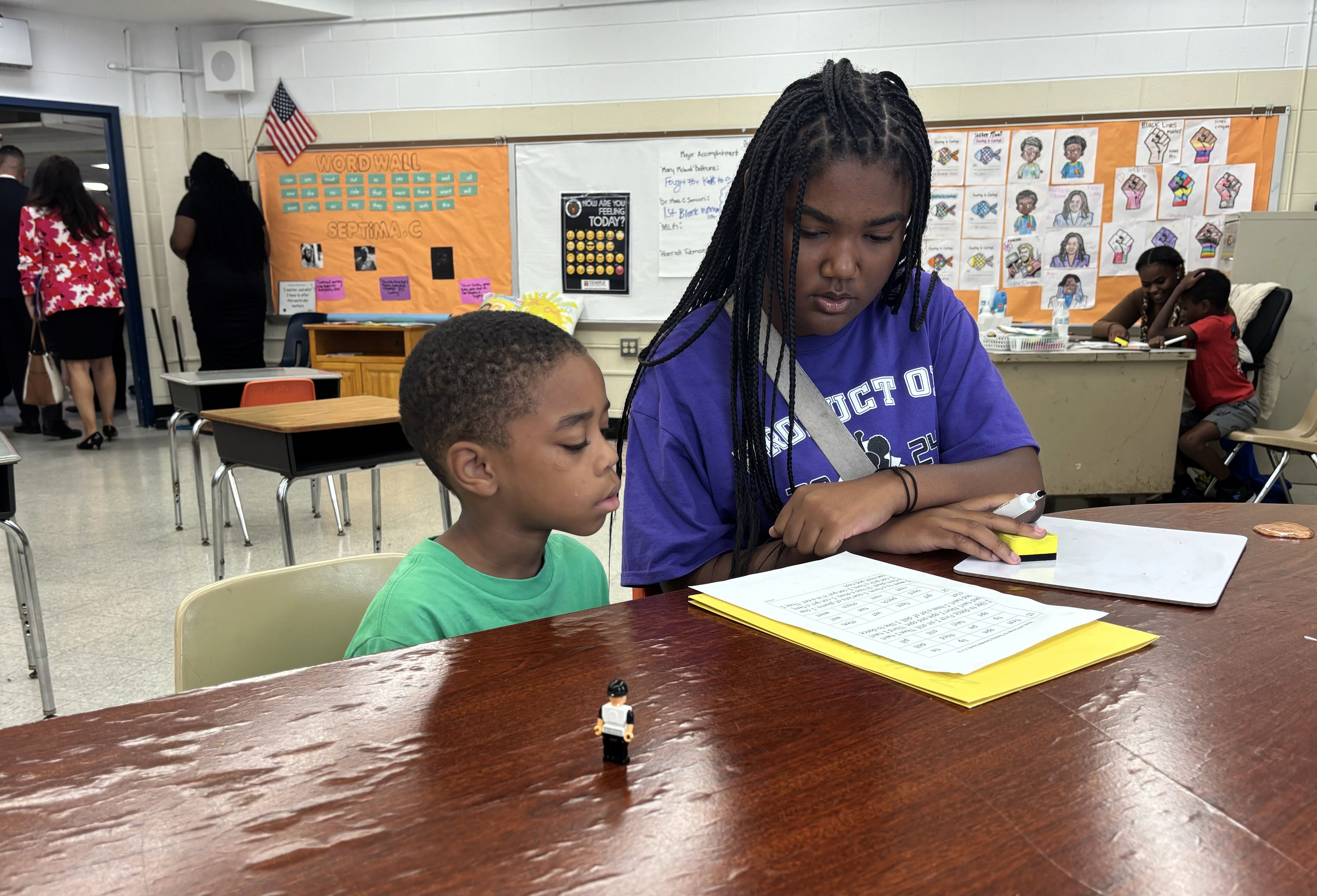Sarasota County Libraries Promote Inclusive Summer Learning Programs Aligned with Sustainable Development Goals
Introduction
Sarasota County Libraries have launched a series of free summer learning events and programs designed to engage children and adults of all ages. These initiatives aim to address community needs by providing accessible educational opportunities, thereby supporting the United Nations Sustainable Development Goals (SDGs), particularly Quality Education (SDG 4), Reduced Inequalities (SDG 10), and Sustainable Cities and Communities (SDG 11).
Program Overview and Community Impact
Sheyenne Scott, Youth and Family Services Coordinator at Sarasota County Libraries, emphasized the goal of fulfilling community needs through diverse programming. The libraries offer activities across ten locations, including:
- Venice Theater Acting Workshop for younger children
- Beginning Embroidery Workshop for tweens and younger
- Steampunk Jewelry Workshop for teens
- Weave a Colorful Mini Wall Hanging for adults
- The Connecting Collage for all ages
These programs foster lifelong learning and creativity, contributing to inclusive and equitable quality education (SDG 4) and promoting cultural participation (SDG 11).
Case Study: Robotics Workshop at Fruitville Library
Allie Kautzer’s sons, Canen (10) and Ari (8), participated in the Robotics Workshop, which introduced children to technology and coding through interactive activities. Facilitated by David Hirschfeld, technology teacher and owner of Bits, Bytes & Bots, the workshop included:
- Introduction to robot capabilities involving sounds and movements
- Robot soccer game encouraging teamwork and problem-solving
- Programming robots via tablet applications, enabling creativity and coding skills
This initiative supports SDG 4 by enhancing digital literacy and technical skills among youth, while also promoting gender equality and reducing inequalities by providing free access to technology education (SDG 5 and SDG 10).
Accessibility and Inclusivity
All summer workshops are free and do not require a library card, ensuring broad accessibility. Registration is encouraged but not mandatory, with provisions allowing late arrivals to join full classes if spots become available. This approach aligns with SDG 10 by reducing barriers to education and participation.
Additional Initiatives
- Summer Reading Challenge: An online program for all ages running through August 2, offering incentives and prizes to encourage literacy and learning.
- Support for Homeschooling Families: New residents like Brittany Ecker have enrolled their children in multiple programs, highlighting the library’s role in supplementing home education and promoting lifelong learning.
Conclusion and Call to Action
Sarasota County Libraries continue to provide vital educational resources that contribute to sustainable community development and equitable learning opportunities. These programs exemplify commitment to the Sustainable Development Goals by fostering inclusive, quality education and community engagement.
For updates and registration, please visit SarasotaCountyLibraries.org.
1. Sustainable Development Goals (SDGs) Addressed or Connected
- SDG 4: Quality Education – The article discusses free summer learning events and programs offered by Sarasota County Libraries, focusing on engaging children and families in educational activities such as robotics, coding, and creative workshops.
- SDG 10: Reduced Inequalities – The programs are free and accessible to all, including those who may not have the means to attend paid camps or travel, addressing inequalities in access to educational resources.
- SDG 9: Industry, Innovation and Infrastructure – The robotics and coding workshops promote technological skills and innovation among children and youth.
- SDG 11: Sustainable Cities and Communities – The libraries serve as community hubs providing inclusive and accessible learning opportunities, contributing to community development.
2. Specific Targets Under Those SDGs Identified
- SDG 4: Quality Education
- Target 4.1: Ensure that all girls and boys complete free, equitable and quality primary and secondary education.
- Target 4.4: Increase the number of youth and adults who have relevant skills, including technical and vocational skills, for employment, decent jobs and entrepreneurship.
- Target 4.5: Eliminate gender disparities and ensure equal access to all levels of education and vocational training for vulnerable populations.
- SDG 10: Reduced Inequalities
- Target 10.2: Empower and promote the social, economic and political inclusion of all, irrespective of age, sex, disability, race, ethnicity, origin, religion or economic or other status.
- SDG 9: Industry, Innovation and Infrastructure
- Target 9.5: Enhance scientific research, upgrade the technological capabilities of industrial sectors in all countries, particularly developing countries.
- SDG 11: Sustainable Cities and Communities
- Target 11.7: Provide universal access to safe, inclusive and accessible, green and public spaces, particularly for vulnerable populations.
3. Indicators Mentioned or Implied to Measure Progress
- Participation Rates – Number of children and families attending free summer learning programs and workshops at the libraries.
- Access and Inclusivity – Availability of programs without requiring a library card and accommodating participants even when classes are full, indicating inclusivity and reduced barriers.
- Skill Development – Engagement in activities such as robotics, coding, and creative workshops that develop technical and vocational skills.
- Retention and Continued Interest – Anecdotal evidence of children applying learned skills at home and expressing interest in further programs (e.g., coding, Minecraft), indicating sustained learning impact.
- Online Engagement – Participation in the summer reading challenge online, which can be tracked through registration and completion rates.
4. Table of SDGs, Targets, and Indicators
| SDGs | Targets | Indicators |
|---|---|---|
| SDG 4: Quality Education |
|
|
| SDG 10: Reduced Inequalities |
|
|
| SDG 9: Industry, Innovation and Infrastructure |
|
|
| SDG 11: Sustainable Cities and Communities |
|
|
Source: heraldtribune.com







